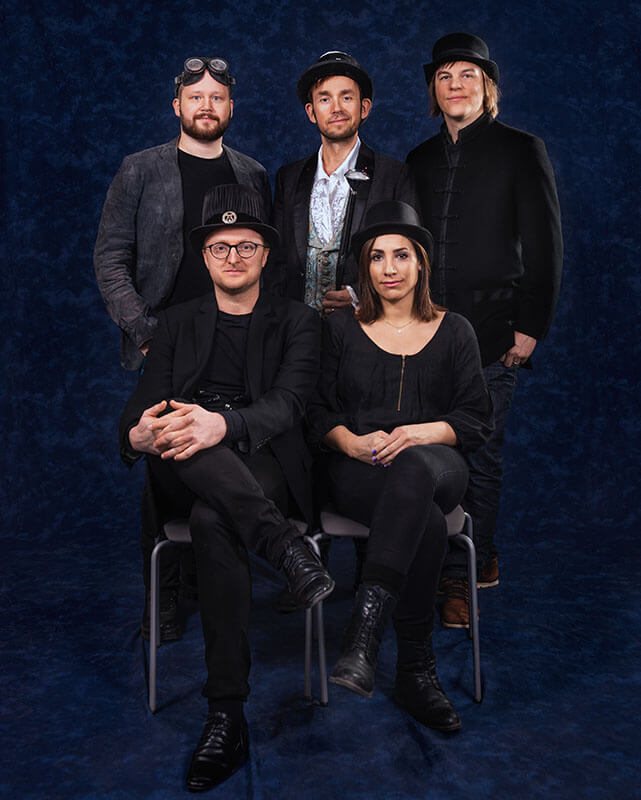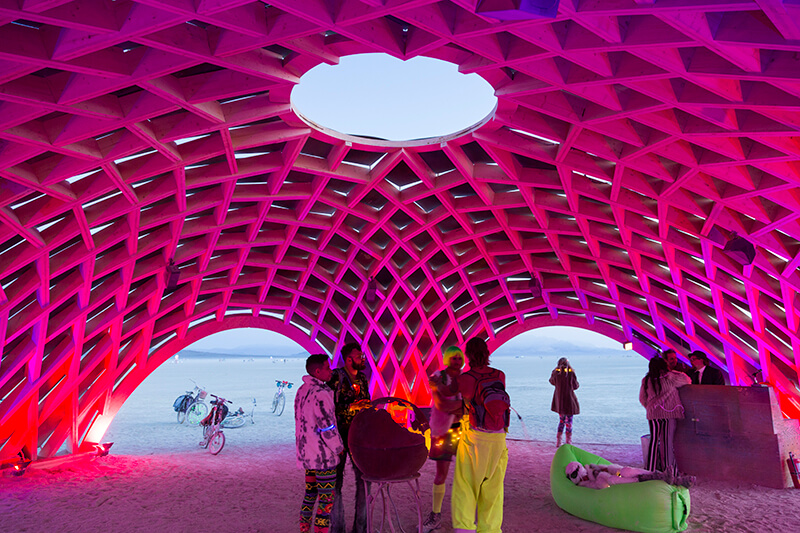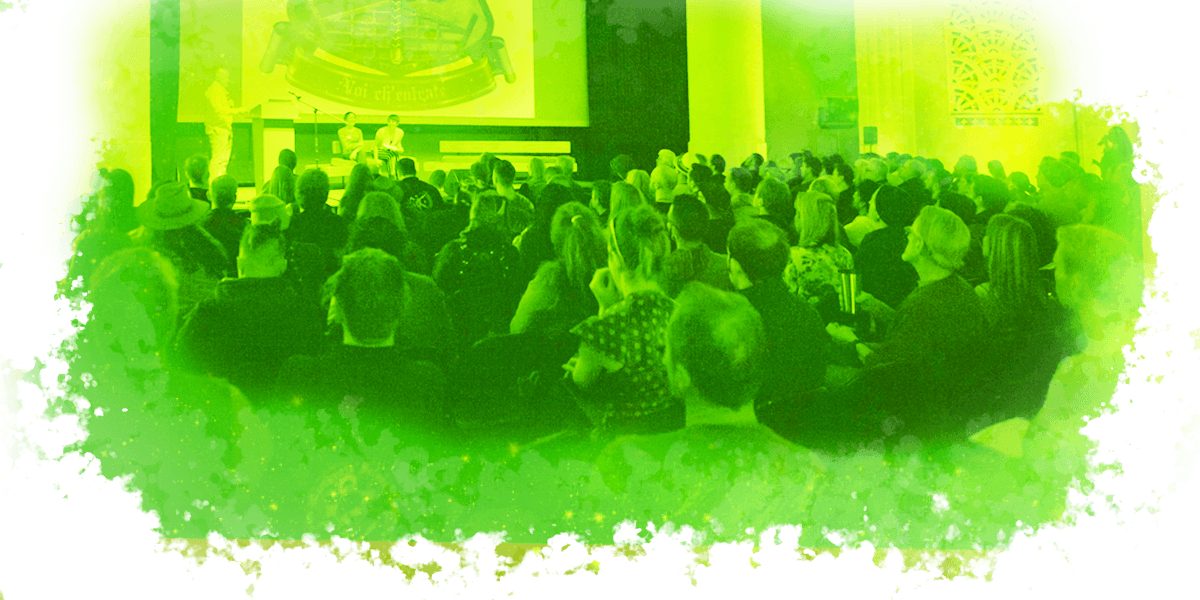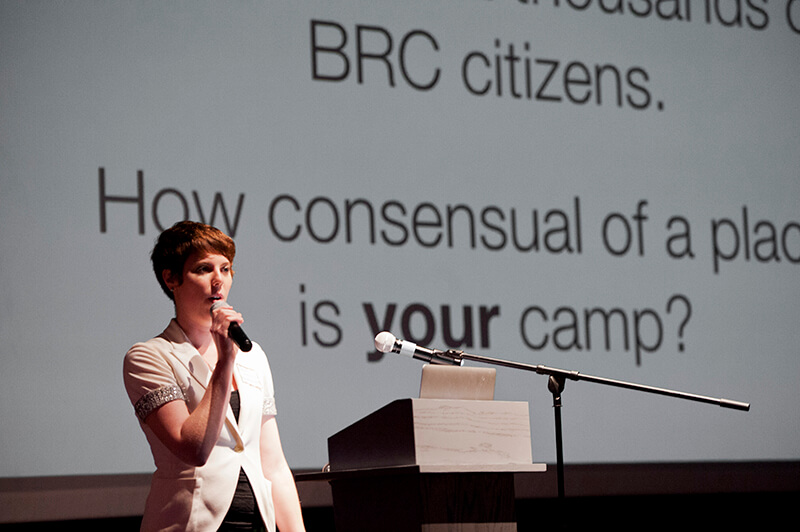 We hired two new full-time staff members, an Education Content Producer and an Education Project Manager, to take on the large amount of work that goes into synthesizing three decades of experience in the Burning Man universe, and to think creatively about how to nurture our community’s growth. They also support academic projects from institutions around the world, including researchers from the MIT Media Lab and Finland’s Aalto University in 2018.
We hired two new full-time staff members, an Education Content Producer and an Education Project Manager, to take on the large amount of work that goes into synthesizing three decades of experience in the Burning Man universe, and to think creatively about how to nurture our community’s growth. They also support academic projects from institutions around the world, including researchers from the MIT Media Lab and Finland’s Aalto University in 2018.
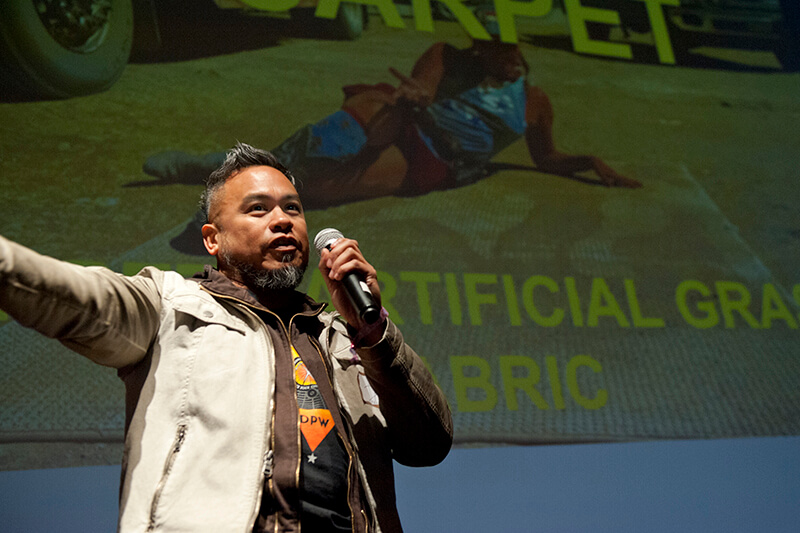 Led by our Education and Event Operations teams, Burning Man Project hosted its eighth Theme Camp Symposium in San Francisco in March 2018. Over 300 theme camp leaders, mutant vehicle camp leaders, and artists attended plenary and breakout sessions covering a wide range of topics, including Decommodification, best practices for handling camp assets and logistics, better acculturation of new campmates, camp leadership qualities, and fostering a culture of consent and mutual respect. Produced jointly by volunteers from our Documentation and Webcast teams, the livestream of the Symposium drew more than 600 online participants. The video is publicly available on our YouTube channel.
Led by our Education and Event Operations teams, Burning Man Project hosted its eighth Theme Camp Symposium in San Francisco in March 2018. Over 300 theme camp leaders, mutant vehicle camp leaders, and artists attended plenary and breakout sessions covering a wide range of topics, including Decommodification, best practices for handling camp assets and logistics, better acculturation of new campmates, camp leadership qualities, and fostering a culture of consent and mutual respect. Produced jointly by volunteers from our Documentation and Webcast teams, the livestream of the Symposium drew more than 600 online participants. The video is publicly available on our YouTube channel.
 In October, Burning Man Project collaborated with the Esalen Institute to produce a week-long conference at their celebrated retreat center in Big Sur, CA. Participants chose from course tracks exploring Burning Man Art, Culture, Collective Impact, and Collaborative Leadership, as well as a series of “Conversations on the Edge,” with a wide variety of speakers. The culture and leadership tracks were prototype courses based on Burning Man’s internally-developed curricula, making this our first experiment in rolling out homegrown content in a focused environment designed exclusively for learning and teaching. A scholarship fund provided access to the conference for those who wouldn’t otherwise have been able to attend.
In October, Burning Man Project collaborated with the Esalen Institute to produce a week-long conference at their celebrated retreat center in Big Sur, CA. Participants chose from course tracks exploring Burning Man Art, Culture, Collective Impact, and Collaborative Leadership, as well as a series of “Conversations on the Edge,” with a wide variety of speakers. The culture and leadership tracks were prototype courses based on Burning Man’s internally-developed curricula, making this our first experiment in rolling out homegrown content in a focused environment designed exclusively for learning and teaching. A scholarship fund provided access to the conference for those who wouldn’t otherwise have been able to attend.
 In November, a contingent of Burning Man Project staff led by CEO Marian Goodell traveled to the University of Fribourg in Switzerland, to attend the first-ever academic conference devoted entirely to Burning Man and transformational event cultures. Scholars in 10 academic disciplines presented to an audience that included researchers from universities around the world, as well as Burning Man regional organizers, artists, and staff. Supported by the university in partnership with the Swiss National Science Foundation, the event was part of a four-year project called “Burning Progeny” that is examining how Burning Man culture and the 10 Principles are taking root in Europe and beyond.
In November, a contingent of Burning Man Project staff led by CEO Marian Goodell traveled to the University of Fribourg in Switzerland, to attend the first-ever academic conference devoted entirely to Burning Man and transformational event cultures. Scholars in 10 academic disciplines presented to an audience that included researchers from universities around the world, as well as Burning Man regional organizers, artists, and staff. Supported by the university in partnership with the Swiss National Science Foundation, the event was part of a four-year project called “Burning Progeny” that is examining how Burning Man culture and the 10 Principles are taking root in Europe and beyond.
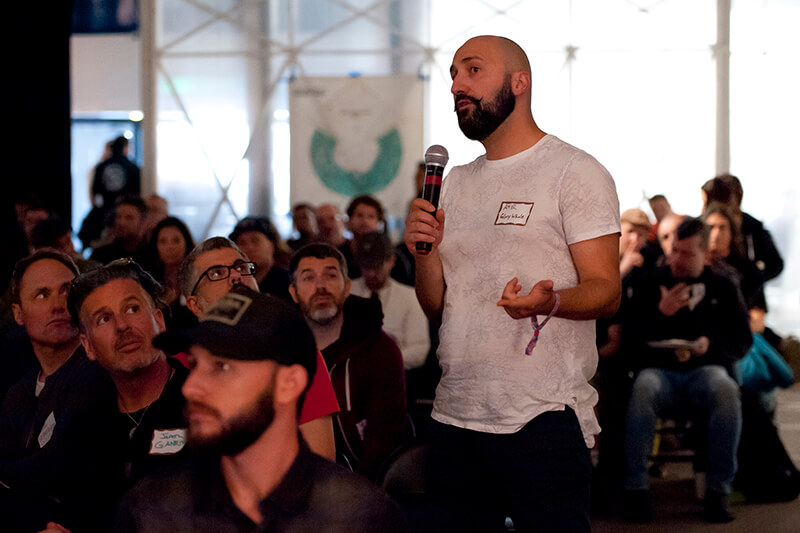 Back in the U.S., the newly established Volunteerism Team finished its first year in 2018. Formed to better synthesize support and resource needs for Burning Man Project’s volunteers, the team established a new training program for Volunteer Leadership. The program includes online interactive sessions, a digital handbook, and live Q & A sessions covering topics like Conflict Resolution, Giving and Receiving Feedback, and Nonviolent Communication. The team also partnered with People Operations to kick off a new, year-round Volunteer Peer Support Counseling group.
Back in the U.S., the newly established Volunteerism Team finished its first year in 2018. Formed to better synthesize support and resource needs for Burning Man Project’s volunteers, the team established a new training program for Volunteer Leadership. The program includes online interactive sessions, a digital handbook, and live Q & A sessions covering topics like Conflict Resolution, Giving and Receiving Feedback, and Nonviolent Communication. The team also partnered with People Operations to kick off a new, year-round Volunteer Peer Support Counseling group.
Many of these activities were supported in part by a handful of donors who contributed to Burning Man Project’s education initiatives in 2019. Over the next few years we will continue to rely on generous support from donors so that we can develop teaching and learning tools that connect the global Burning Man network and empower people to enhance their lives and communities.
